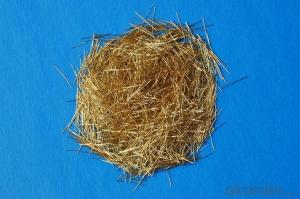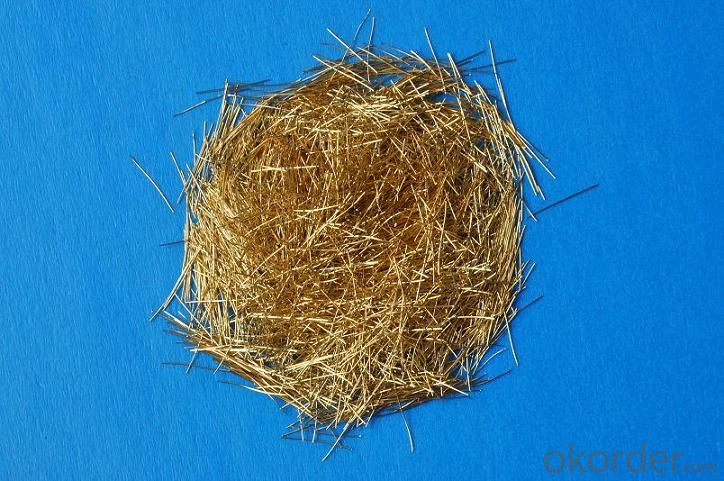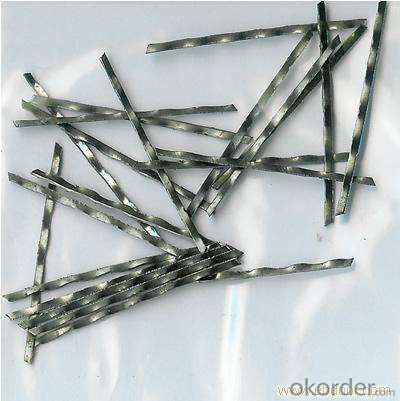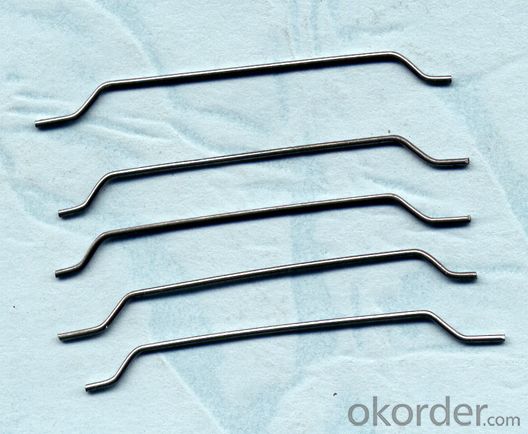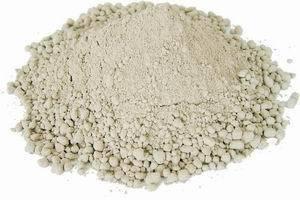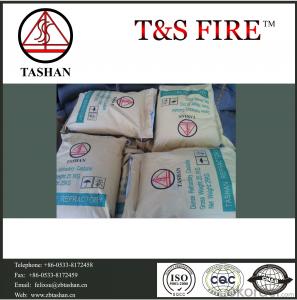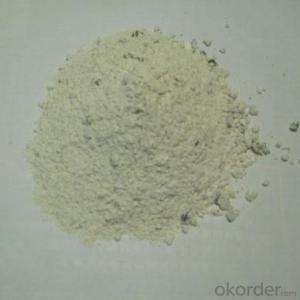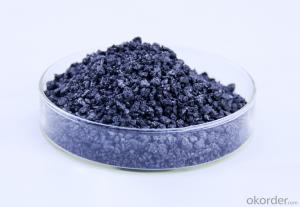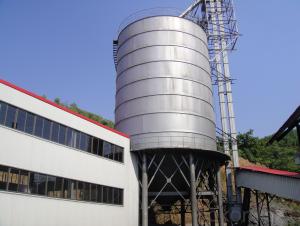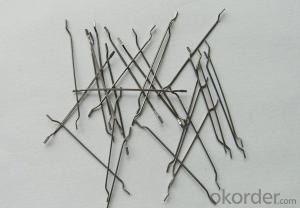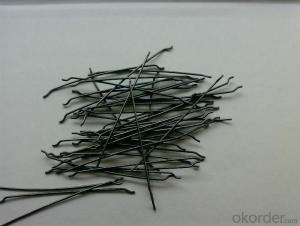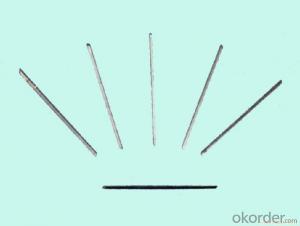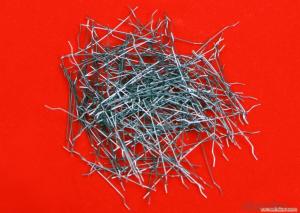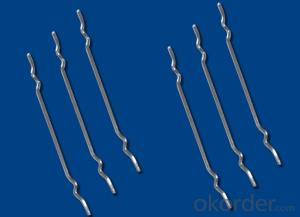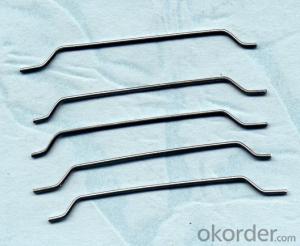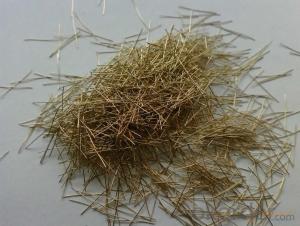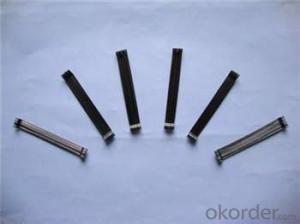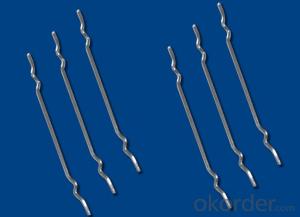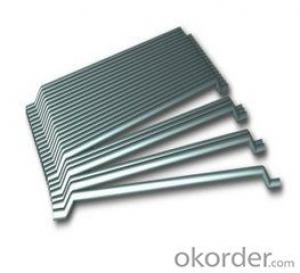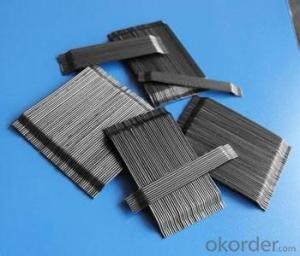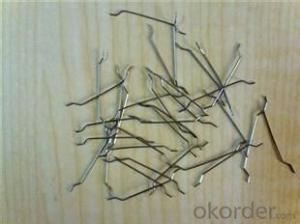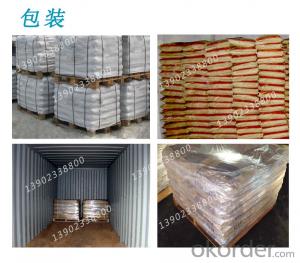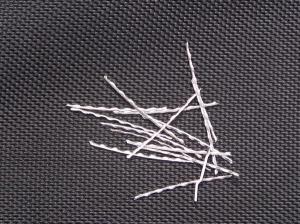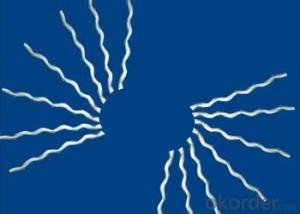Melt Extract Stainless Steel Fiber Loose Copper Plated Micro for Concrete
- Loading Port:
- Tianjin
- Payment Terms:
- TT OR LC
- Min Order Qty:
- 1000 kg
- Supply Capability:
- 30000 kg/month
OKorder Service Pledge
Quality Product, Order Online Tracking, Timely Delivery
OKorder Financial Service
Credit Rating, Credit Services, Credit Purchasing
You Might Also Like
Quick Details
Place of Origin: Jiangsu, China (Mainland)
Model Number: HT-MC
Material: Color Steel
certificated: ISO 9001
The products
Diameter: 0.4-1mm
Length: 30mm-60mm
Strength: 800-1200Mpa
Steel fiber specification can be made according to requirement
Specifications
| Product | Diameter | Length mm/in | Aspect Ratio | Type | Packing |
| G-6030 | 0.5 mm (0.0197 in) | 30 mm (1.1811 in) | 60 | Glued | 20 kg/Bag, or 1,000kg/ Bulk Bag |
| G-6535 | 0.55 mm (0.0217 in) | 35 mm (1.3780 in) | 65 | Glued | 20 kg/Bag, or 1,000kg/ Bulk Bag |
| G-6035 | 0.6 mm (0.0236 in) | 35 mm (1.3780 in) | 60 | Glued | 20 kg/Bag, or 1,000kg/ Bulk Bag |
| G-8060 | 0.75 mm (0.0295 in) | 60 mm (2.3622 in) | 80 | Glued | 20 kg/Bag, 50 bags/Pallet |
| G-6060 | 0.9 mm (0.0354 in) | 60 mm (2.3622 in) | 60 | Glued | 20 kg/Bag, 50 bags/Pallet |
| G-6030 | 0.5 mm (0.0197 in) | 30 mm (1.1811 in) | 60 | Loose | 20 kg/Bag, or 1,000kg/ Bulk Bag |
| G-6535 | 0.55 mm (0.0217 in) | 35 mm (1.3780 in) | 65 | Loose | 20 kg/Bag, or 1,000kg/ Bulk Bag |
| G-6035 | 0.6 mm (0.0236 in) | 35 mm (1.3780 in) | 60 | Loose | 20 kg/Bag, or 1,000kg/ Bulk Bag |
| G-8060 | 0.75 mm (0.0295 in) | 60 mm (2.3622 in) | 80 | Loose | 20 kg/Bag, 50 bags/Pallet |
| G-6060 | 0.9 mm (0.0354 in) | 60 mm (2.3622 in) | 60 | Loose | 20 kg/Bag, 50 bags/Pallet |
Picture
Steel fiber
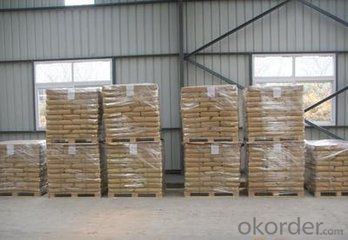
Improve mechanical performance of concrete
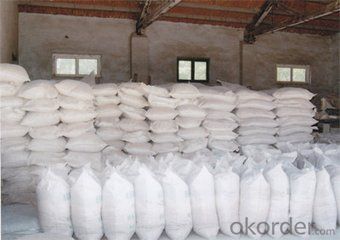
certificated: ISO 9001
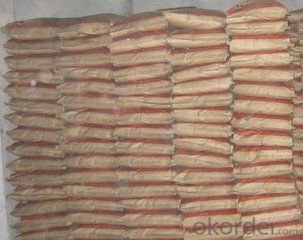
FAQ
Technical advantages of Daye steel fiber:
- Q: Can melt extract stainless steel fiber enhance the resistance of concrete to chemical attack?
- Yes, melt extract stainless steel fiber can enhance the resistance of concrete to chemical attack. Stainless steel fibers are known for their excellent corrosion resistance, durability, and high melting point. When added to concrete, these fibers act as a reinforcement, increasing its overall strength and resistance to various forms of degradation, including chemical attack. Chemical attack on concrete occurs when aggressive substances, such as acids, alkalis, or salts, come into contact with the concrete surface. This can lead to the deterioration of the concrete, including the loss of strength, cracking, and eventual failure. However, by incorporating melt extract stainless steel fibers into the concrete mix, the resistance of the concrete to chemical attack is significantly improved. The stainless steel fibers form a network within the concrete, providing an additional barrier against the penetration of aggressive chemicals. This network helps to prevent the diffusion of ions and the ingress of moisture, which are key factors in chemical attack. Additionally, the stainless steel fibers act as a reinforcement, enhancing the overall durability and strength of the concrete. Furthermore, melt extract stainless steel fibers have a high melting point, allowing them to withstand the high temperatures that can be generated during chemical reactions. This prevents the fibers from melting or deteriorating when exposed to aggressive chemicals, ensuring their effectiveness in enhancing the resistance of the concrete. In conclusion, the addition of melt extract stainless steel fiber to concrete can significantly improve its resistance to chemical attack. The corrosion resistance, durability, and high melting point of these fibers make them an effective reinforcement against aggressive substances, enhancing the overall durability and lifespan of the concrete structure.
- Q: What is the effect of melt extract stainless steel fiber on the modulus of rigidity of concrete?
- Concrete's modulus of rigidity is generally improved by the addition of melt extract stainless steel fibers. These fibers reinforce the concrete matrix, enhancing its overall performance and mechanical properties. The modulus of rigidity, or shear modulus, measures a material's stiffness and ability to resist deformation under shear stress. By incorporating stainless steel fibers, the modulus of rigidity is increased, resulting in a more rigid and durable concrete structure. Stainless steel fibers act as reinforcement within the concrete, providing additional strength and improving its tensile strength and crack resistance. This reinforcement prevents cracks from propagating and enhances the concrete's ability to withstand external loads and stresses. Furthermore, the inclusion of melt extract stainless steel fibers enhances the flexural strength of the concrete, enabling it to withstand bending forces without failure. This contributes to the overall rigidity of the concrete structure. The stainless steel fibers also help to evenly distribute applied loads throughout the concrete, reducing localized stress concentrations. This leads to a more uniform distribution of forces, ultimately enhancing the modulus of rigidity. In conclusion, the addition of melt extract stainless steel fibers has a positive impact on the modulus of rigidity of concrete, resulting in a stronger and more durable material. These improved mechanical properties make it suitable for various applications requiring high-performance concrete, such as infrastructure projects, industrial flooring, and seismic-resistant structures.
- Q: How does melt extract stainless steel fiber affect the resistance of concrete to sulfate attack?
- The resistance of concrete to sulfate attack is positively influenced by the inclusion of melt extract stainless steel fiber. Sulfate attack arises from the reaction between sulfate ions found in soil or water and specific compounds in concrete, which results in the creation of expansive substances that can lead to the deterioration of the concrete. The incorporation of stainless steel fibers into concrete acts as a reinforcement material, enhancing its overall durability and resistance to various forms of degradation, such as sulfate attack. These fibers aid in improving the concrete's ability to resist the infiltration of sulfate ions and reduce the formation of detrimental expansive substances. The utilization of the melt extraction process in the production of stainless steel fibers ensures a high degree of purity and a uniform dispersion throughout the concrete matrix. As a result, the bonding between the fibers and the surrounding concrete is enhanced, resulting in a stronger and more resilient material. Moreover, the corrosion-resistant characteristics of stainless steel fibers make them highly effective in preventing concrete deterioration caused by sulfate attack. In contrast to other fiber types, stainless steel fibers do not corrode when exposed to sulfate ions. This corrosion resistance helps to maintain the integrity of the concrete, preventing the formation of cracks or other types of damage that may occur due to the expansion of sulfate products. To conclude, the addition of melt extract stainless steel fiber to concrete enhances its resistance to sulfate attack by improving its ability to withstand the infiltration of sulfate ions and reducing the formation of expansive substances. The corrosion-resistant properties of stainless steel fibers further contribute to the long-term durability and performance of concrete in sulfate-rich environments.
- Q: What are the different shapes and sizes of melt extract stainless steel fiber available?
- Melt extract stainless steel fibers can be found in various shapes and sizes to meet different application and requirement needs. Some commonly seen shapes include straight, crimped, wavy, and hooked fibers. In terms of sizes, melt extract stainless steel fibers can range from extremely fine, with diameters as small as 3 microns, to larger sizes of 30 microns or more. The length of the fibers can also vary, typically ranging from a few millimeters to several centimeters. The choice of shape and size for melt extract stainless steel fibers depends on the specific application and desired properties. For instance, straight fibers are often preferred in applications where high tensile strength and stability are crucial. On the other hand, crimped or wavy fibers offer better bonding with the matrix material in composites. Hooked fibers are particularly beneficial in concrete applications as they enhance anchoring and reinforcement. Overall, the availability of different shapes and sizes of melt extract stainless steel fibers enables customization and optimization of performance in diverse industries like construction, automotive, aerospace, and textiles.
- Q: Can melt extract stainless steel fiber be used in pedestrian walkway pavements?
- Yes, melt extract stainless steel fiber can be used in pedestrian walkway pavements. Stainless steel fibers are often added to concrete mixtures to enhance their mechanical properties and improve their performance. The addition of stainless steel fibers increases the tensile strength and crack resistance of the concrete, making it more durable and suitable for high-traffic areas like pedestrian walkways. Additionally, stainless steel fibers can also provide better resistance to corrosion and can help prevent the formation of cracks due to temperature changes or shrinkage. Therefore, melt extract stainless steel fiber is an excellent choice for reinforcing pedestrian walkway pavements and ensuring their longevity and safety.
- Q: What is the recommended fiber dosage when using melt extract stainless steel fiber in shotcrete?
- The appropriate amount of melt extract stainless steel fiber to use in shotcrete can vary depending on the specific project requirements and desired performance characteristics. Generally, it is recommended to use a fiber dosage of 20 to 40 kilograms per cubic meter (kg/m3) or 1.2 to 2.4 pounds per cubic yard (lb/yd3). This dosage range effectively reinforces the shotcrete and improves its overall durability, crack resistance, and impact resistance. To determine the exact fiber dosage for your project, it is important to consult with the manufacturer or a qualified engineer who can consider the specific needs and requirements.
- Q: What is the effect of melt extract stainless steel fiber on the modulus of brittleness of concrete?
- The effect of melt extract stainless steel fiber on the modulus of brittleness of concrete is that it increases the ductility and flexural strength of concrete, thereby reducing its brittleness. The addition of stainless steel fibers improves the crack resistance and enhances the overall performance of concrete by preventing the propagation of cracks and increasing its ability to withstand external forces and impacts.
- Q: How does melt extract stainless steel fiber affect the permeability of concrete to chloride ions?
- Melt extract stainless steel fiber can significantly reduce the permeability of concrete to chloride ions. The addition of this type of fiber enhances the concrete's ability to resist the penetration of chloride ions, which are responsible for causing corrosion in reinforced concrete structures. The fiber acts as a physical barrier, preventing the movement of chloride ions through the concrete matrix. This ultimately helps to increase the durability and lifespan of concrete structures in chloride-rich environments.
- Q: Can melt extract stainless steel fiber improve the resistance of concrete to sulfate attack?
- Yes, melt extract stainless steel fiber can improve the resistance of concrete to sulfate attack. Stainless steel fibers have high corrosion resistance and can enhance the durability and strength of concrete by reducing cracking and improving its resistance to chemical attacks such as sulfate attack.
- Q: Can melt extract stainless steel fiber be used in the construction of offshore platforms?
- Yes, melt extract stainless steel fiber can be used in the construction of offshore platforms. It is a durable and corrosion-resistant material that can enhance the strength and integrity of the structure, making it suitable for harsh marine environments.
Send your message to us
Melt Extract Stainless Steel Fiber Loose Copper Plated Micro for Concrete
- Loading Port:
- Tianjin
- Payment Terms:
- TT OR LC
- Min Order Qty:
- 1000 kg
- Supply Capability:
- 30000 kg/month
OKorder Service Pledge
Quality Product, Order Online Tracking, Timely Delivery
OKorder Financial Service
Credit Rating, Credit Services, Credit Purchasing
Similar products
Hot products
Hot Searches
Related keywords
